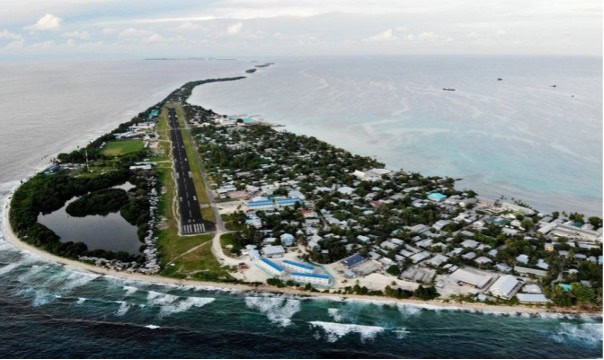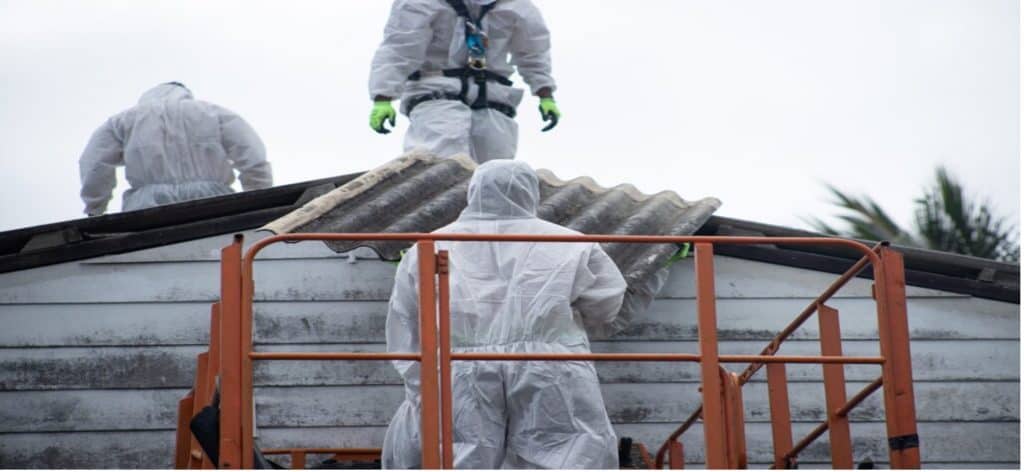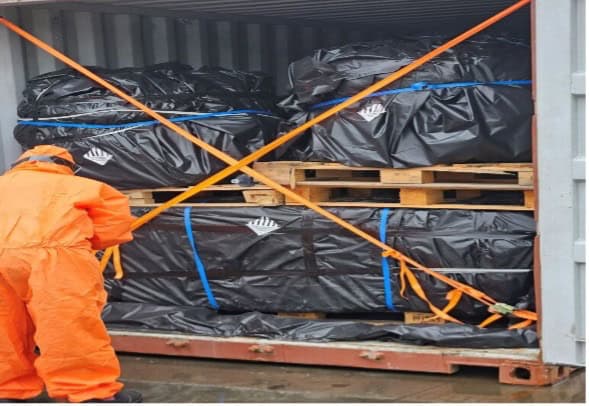Pacific Island countries are taking action to safely remove degrading asbestos from buildings as part of their efforts to ban the importation of asbestos-containing materials (ACM). In 2017, 14 Pacific countries agreed to cooperate and work towards a full ban on asbestos.
The mapping and removal initiatives are part of the PacWaste Plus programme run by the Pacific Regional Environment Program (SPREP) and funded by the EU, which is assisting countries to effectively remediate legacy asbestos, and regulate its use, transport, and disposal to protect human health from the harmful effects caused by exposure to this deadly dust.
The program also works on public awareness of the general ban, the development of legislation and regulations, and a regional template of a Code of Practice that defines appropriate and safe processes for the handling, transporting, and disposing of legacy asbestos.

Tuvalu
One example of a Pacific country taking action is Tuvalu. In 2024, the Tuvalu Department of Waste Management (DWM) mapped the potential hazard of asbestos through accurate data collection and assessment.
The Director of DWM, Mr Epu Falega, who is working to safeguard his country and people, said that “learning the location and quantity of asbestos in the Outer Islands means we can manage the interaction with the asbestos, employ safe practices if there is any disaster situation, and make a plan for its eventual removal and remediation”.
The Tuvalu island of Niu has completed the first successful survey of all buildings to understand the location of asbestos. The assessment was undertaken using an in-field rapid screening tool called the microPHAZIR, supplied to the DWM by the EU-funded and SPREP-implemented, PacWastePlus programme. The microPHAZIR is a handheld analyser tool that enables safe, non-invasive, in-field rapid screening and identification of all six types of regulated asbestos fibres.
Additionally, an awareness programme with 60 representatives from the community, including 20 men, 20 women and 20 youth, was conducted to educate the community on how to live with asbestos in their houses.

Kingdom of Tonga
The Kingdom of Tonga has made a significant effort to safeguard its communities from the dangers of asbestos-containing materials (ACM) by creating and approving an Asbestos Management Code of Practice (AMCOP). This code guides the safe handling and supervision of ACM within the nation.
The Asbestos Management Code of Practice is seen as a vital initial measure to guarantee the effective management of asbestos in the future by offering guidance on managing, controlling, and containing all asbestos materials in Tonga.

Nauru
Stockpiles of asbestos-containing materials (ACM) have been safely removed from the Nauru landfill in a recent asbestos abatement activity. The cleanup effort involved safely repacking and transporting the hazardous material to a designated disposal facility in New Zealand. The removal of the ACM has eliminated a potential health hazard for the local community and marks a significant milestone in hazardous waste management in Nauru.
 (Photos courtesy PacWastePlus)
(Photos courtesy PacWastePlus)
